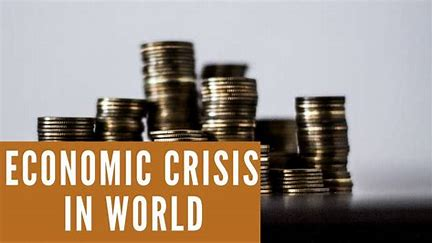What is economic crisis? Its impact
An economic crisis refers to a condition in which the economy is shaken unexpectedly and rapidly spreading. The trigger can take various forms, such as a debt crisis, a banking crisis, an asset bubble burst, and a balance of payments crisis. For example, a debt crisis happens when the risk of default soars. The public authority's ability to repay debts falls. Government debt increases dramatically, higher than the increase in tax income. The public authority cannot acquire any more cash because investors have lost faith in the public authority's ability to pay. A few economists argue that most economic downturns or dejections originate from financial crises. One notable example is the Great Despondency, which started with a bank run and a stock market crash. The 2008-2009 subprime mortgage crisis also triggered a serious downturn in the US and spread around the world. The cause was the bursting of the real estate bubble. Real estate costs have risen such a lot of that they have surpassed fair value. And, unexpectedly, the cost fell. That sparked panic in the economy because of the large amounts of cash being invested in real estate. The crisis has an impact on economic activity and raises some socio-political issues. Gross domestic product development drooped, the joblessness rate shot up, and many individuals lost their cash. Destitution and yearning increased, giving rise to issues of wrongdoing and uproars. In certain nations, the crisis prompted the removal of the incumbent government.
The economic crisis has had a broad impact on the economy and even the social conditions of society. I'll break down a portion of the adverse impacts:
Joblessness spiked. Economic crises lead to a downturn or even misery, forcing businesses to slice yield because of weak demand. They began to rationalize creation costs by firing a portion of their laborers.
Family wealth fall. Individuals' incomes drop because of the greater joblessness rate. The people who are as yet working may also have to get lower salaries as the business measures productivity and rationalizes operating expenses. Falling assets demolish the situation and decrease family wealth. They incurred capital misfortunes and at this point not got regular payments, such as profits.
Deteriorated business profits. Demand for labor and products falls as family income and wealth fall. Falling demand left most creation facilities jobless. Businesses cannot operate at economies of scale, increasing the unit cost of the item.
Social crisis. Destitution levels soar as family income and wealth fall. It triggers an increase in social issues such as wrongdoing and appetite.



.jpg)
Comments
Post a Comment